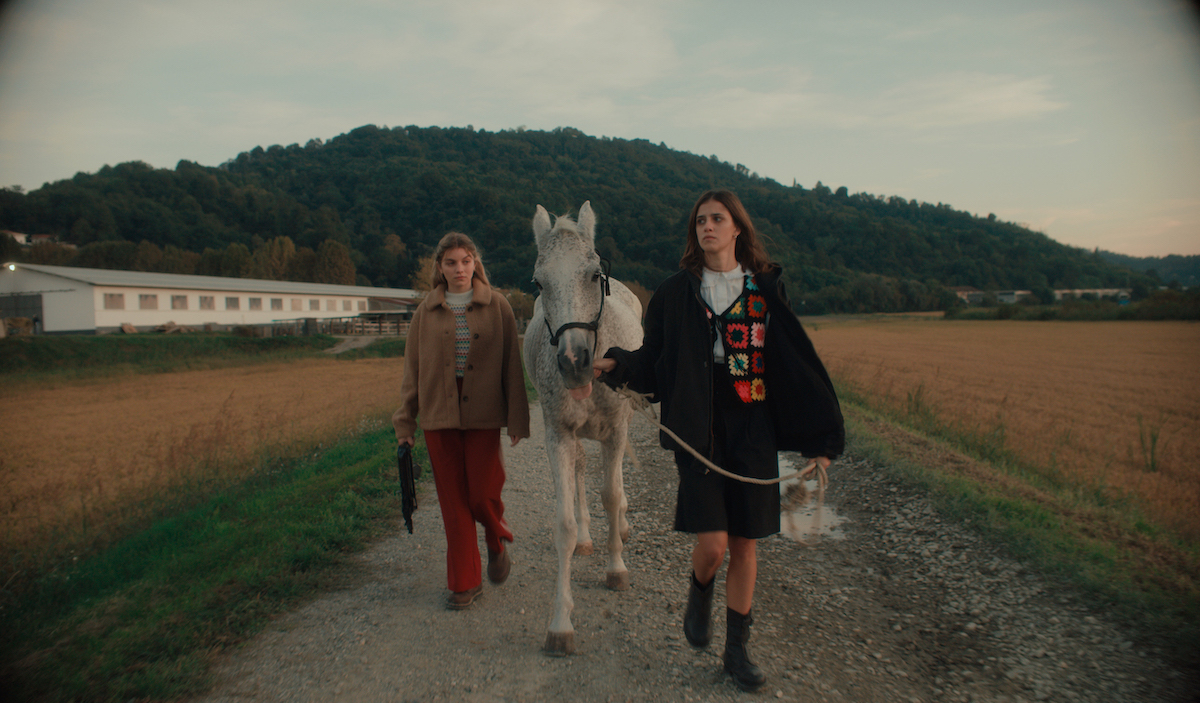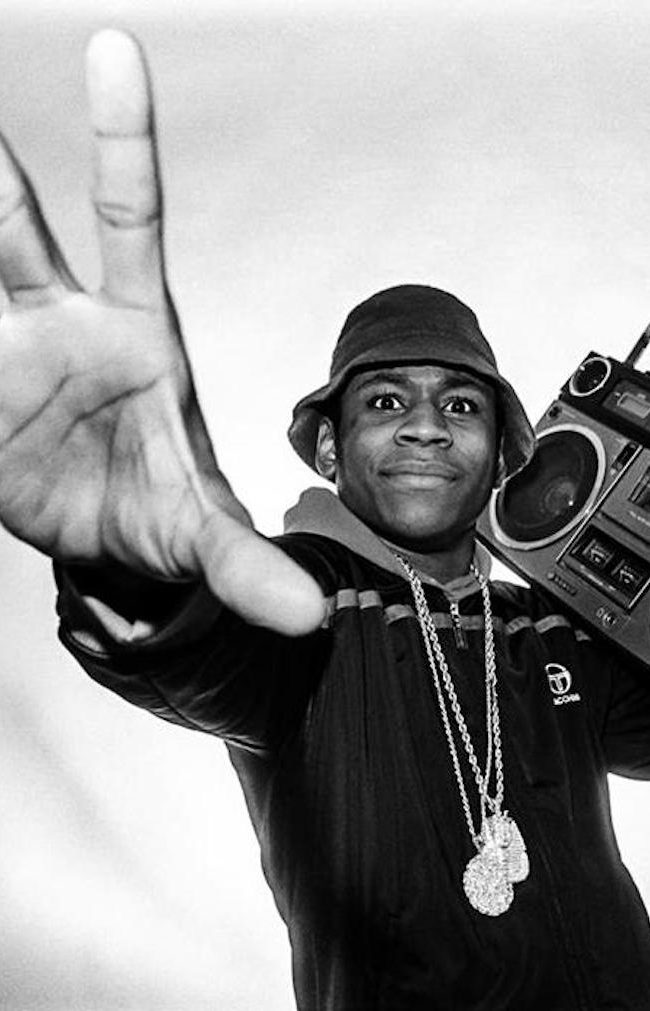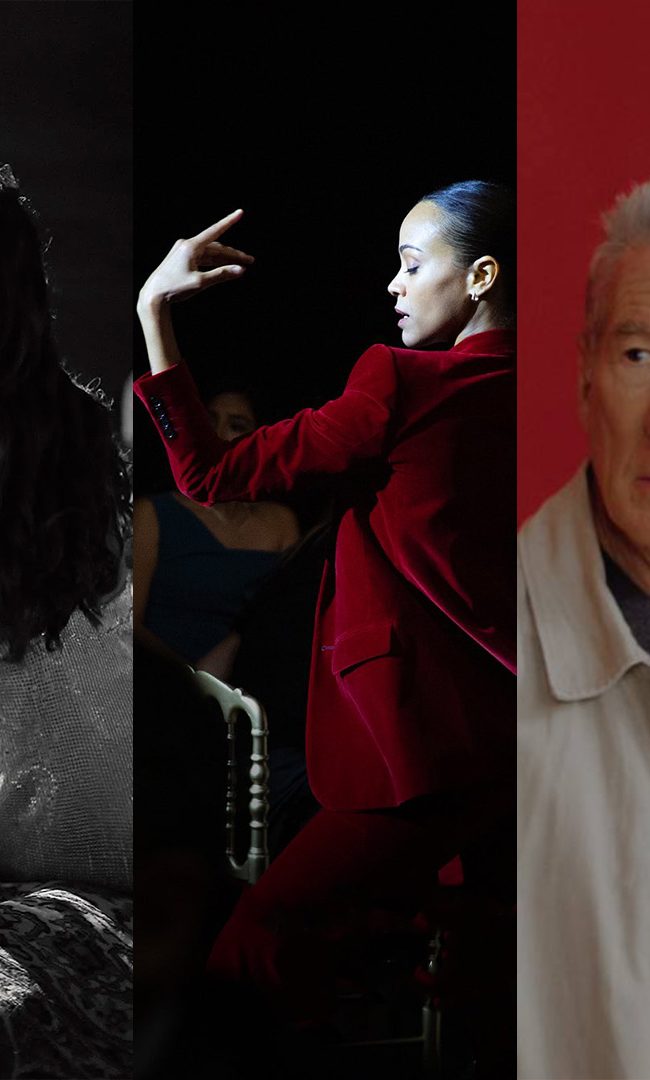AMANDA

(Check out Chris Reed’s movie review of Amanda, in theaters now via Oscilloscope. Seen it? Join the conversation with HtN on our Letterboxd Page.)
There is a lot of deadpan dialogue delivery in Amanda, Italian director Carolina Cavalli’s debut feature, recalling the work of filmmakers like Wes Anderson (The Grand Budapest Hotel) and Yorgos Lanthimos (The Favourite), but don’t let that surface lack of emotion fool you: there is much ado roiling just beneath. As incarnated by actress Benedetta Porcaroli (The Catholic School), the titular character is going through quite a lot, starting with a quarter-century crisis that looks to resolve itself no time soon. Aimless youth may seem like an enviable goal, but here it is a nightmare, albeit an exquisitely designed one.
Amanda is not alone, for in her contemporary, Rebecca (Galatéa Bellugi, Tralala), she find a similarly lost soul. At first, however, there is no one like her. Just back from Paris, Amanda struggles to fit in with her family of pharmacists. Their business is of no interest to her, though she is happy to accept rent money from her parents, much to the disgust of her older sister, Marina (Margherita Missoni). Living in a one-room flat all by herself, she remains aloof from both responsibilities and challenges, though she does appear to have an easy rapport with Marina’s young daughter, her niece, Stella.
But then one day her mother insists she go visit her own best friend, Viola (Giovanna Mezzogiorno, The Time of Indifference), whose daughter Rebecca has locked herself in her room and refuses to come out. The introverted Amanda is hardly excited at the prospect, but something appeals in Rebecca’s even more stridently antisocial tendencies. After some initial conflict, the two women take to each other. Perhaps a friend is all they each needed.
If that doesn’t sound like a particularly robust narrative, it’s because the actual plot is, indeed, slim. What intrigues the viewer are the striking visual details and consistent tone of detachment, the mise-en-scène acting as a cinematic incarnation of existential angst and ennui. Even when thoughts are spoken aloud, so many truths remain hidden. Indeed, the beauty of the surroundings are perhaps the problem, gorgeous but stifling.
The performances—especially those of the two leads—are pitch-perfect, Porcaroli and Bellugi conveying simultaneous indifference and vulnerability. The supporting ensemble gets it right, too, layering just the right amount of absurdity into their obvious near-hysteria. There’s even a perfectly cast horse.
Eventually, Amanda and Rebecca face further obstacles, including those which threaten their fragile bond. But in a world where so much value is placed on superficial treasures, however resplendent they may be, it’s important to push past the barriers of convention and seek something deeper. It would be stretching it to say that, by the end, our not-so-dynamic duo has broken free from their societal bonds, but at least they have taken the first step to do so. Shrugging off the shackles of lethargy, they strive into a gloriously ordinary tomorrow, done with today.
– Christopher Llewellyn Reed (@ChrisReedFilm)
Oscilloscope; Carolina Cavalli; Amanda movie review











